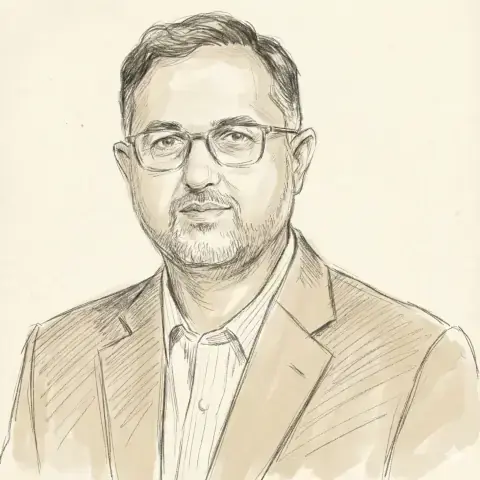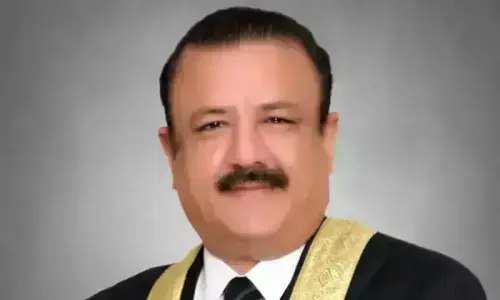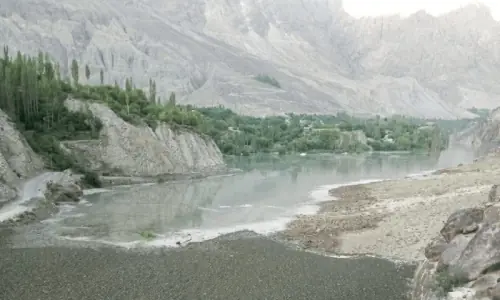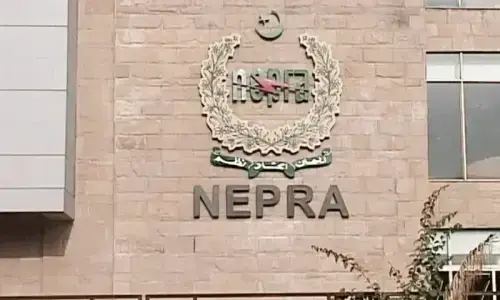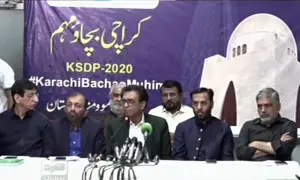ISLAMABAD: The All-Party Conference convened by Prime Minister Nawaz Sharif on Friday decided to amend the Constitution to provide for trial of terror suspects by military courts for a period of two years.
The amendment endorsed by the APC will be known as the 21st Amendment. It will be tabled in the National Assembly on Saturday and in Senate on Tuesday.
The proposed amendment bill calls for amending Article 175 of the Constitution (Establishment and Jurisdiction of Courts) and the First Schedule of the Constitution, which contains laws exempted from operation of Article 8 (1) and (2) – the clauses pertaining to fundamental rights.
Gen Raheel Sharif says ‘special courts are not the desire of the army but need of extraordinary times’
“The APC decided about the implementation of the National Action Plan and endorsed the proposed legislative measures, including amendments to the Pakistan Army Act to extend its jurisdiction for speedy trial of cases under specified acts and provide the constitutional cover with a sunset clause of two years from the date of enactment,” said a joint declaration issued after the conference which lasted about six hours.
The conference was attended by political parties represented in parliament and the military leadership.
A similar conference held on Dec 24 had come up with a 20-point National Action Plan against terrorism, including a recommendation for establishment of speedy courts headed by military officers for prosecution of terror suspects.
However, days later dissent surfaced among the political parties on the issue of amending the Constitution for the sake of military courts.
Cognisant of the fact that any move to establish military courts without a constitutional cover would face legal challenges, the government had decided to convene this conference to develop consensus on the proposed constitutional amendment.
Opening the conference, Prime Minister Sharif called for bold decisions. He reminded the political leadership that the decisive moment had come to hit terrorists hard.
“We will not let go waste the decisive moment of hitting the terrorists hard,” the prime minister was quoted as having said.
Army Chief Gen Raheel Sharif used the occasion to respond to the critics of military courts who claimed that the idea was a brainchild of the army. “Special courts are not the desire of the army but need of extraordinary times,” he said and hoped that the consensus achieved at the previous APC would remain intact.
“Our today’s decisions will determine the destiny of our nation,” he told the participants as he set the tone for the discussions.
 |
| ARMY chief Gen Raheel Sharif |
There was little opposition to speedy trial courts by other speakers, except for JUI-F chief Maulana Fazlur Rehman, who too later half-heartedly joined the consensus.
The Maulana feared that the courts would be used to suppress religious elements. However, after an assurance from the government that he would be kept on board regarding counter-extremism measures, he agreed to endorse the bill.
PPP Co-Chairman Asif Ali Zardari, in his statement of support, described the fight for elimination of terrorism as “a national mission”.
Legislators belonging to his party had been at the forefront opposing the constitutional cover for military courts during the parliamentary debate over the past few days.
PML-Q President Chaudhry Shujaat Hussain said bold steps needed to be taken even if it was politically unpopular.
His party’s General Secretary Mushahid Hussain Sayed, much like in the earlier edition of APC, looked aggressive. He said the political leadership, which was required to rise to the occasion, looked to be overawed by fear. This state of fear, he cautioned, would not serve anyone’s cause.
Pakistan Tehreek-i-Insaf Chairman Imran Khan said: “Mr Prime Minister, we fully support you in this mission”.
AMENDMENTS: The preamble of the Bill for 21st Constitutional Amendment, endorsed by the APC, cites extraordinary circumstances for speedy trial of terrorism-related cases and the need for providing constitutional protection to the steps taken for the security and integrity of the country.
According to the bill, military courts will try individuals indulging in terrorist activities in the name of religion or sect. Members of private armies, armed groups, wings and militias too can be tried by the military courts.
The 21st Amendment will take effect as soon as it is signed into law by President Mamnoon Hussain after both houses of the parliament pass it next week.
Article 175 of the Constitution will be amended in a manner that it will not apply to terror accused tried under the Pakistan Army Act 1952, Pakistan Air Force Act 1953 and Pakistan Navy Ordinance 1961.
Meanwhile, these acts and the Protection of Pakistan Act 2014 will be placed in the First Schedule of the Constitution. The new entries will be made in Part 1(iii). The inclusion of these laws in the 1st Schedule means that they will be exempted from the operation of Article 8 (1) and (2). The article states that any law that is inconsistent with fundamental rights will be void and restrains the state from making laws that take away or abridge the rights.
REACTION: Speaking to media after the conference, MQM leader Farooq Sattar said religious extremism posed existential threat to the country. He said the country was in a state of war against terrorists, so there was no point in worrying about the fundamental rights of the enemy.
PTI Vice Chairman Shah Mehmood Qureshi said the national consensus against terrorism had to be taken forward. He said his party supported actions against terrorism while remaining within the Constitution.
Maulana Fazl said he would consult his legal advisers on the issue and the JUI-F would give its input in parliament.
Information Minister Pervez Rashid said the decision on military courts was taken through consensus and no one had any further reservations.
Published in Dawn, January 3rd, 2015
On a mobile phone? Get the Dawn Mobile App: Apple Store | Google Play


